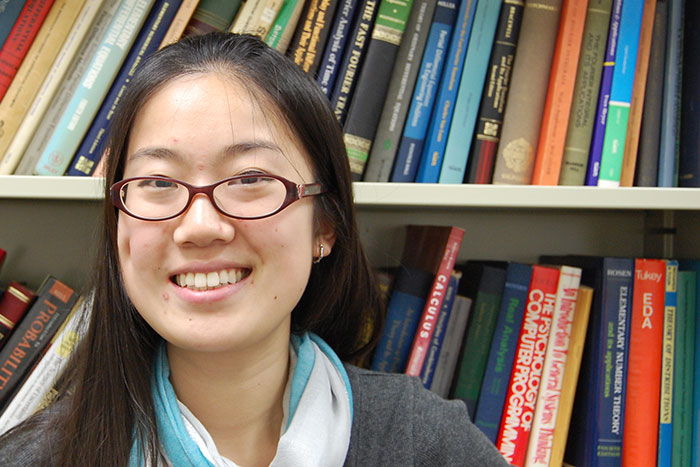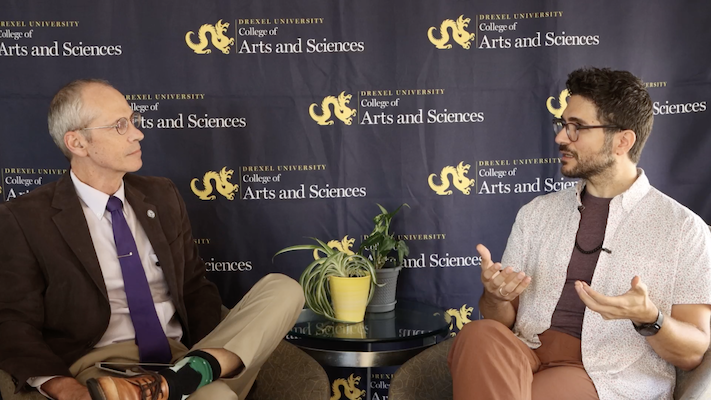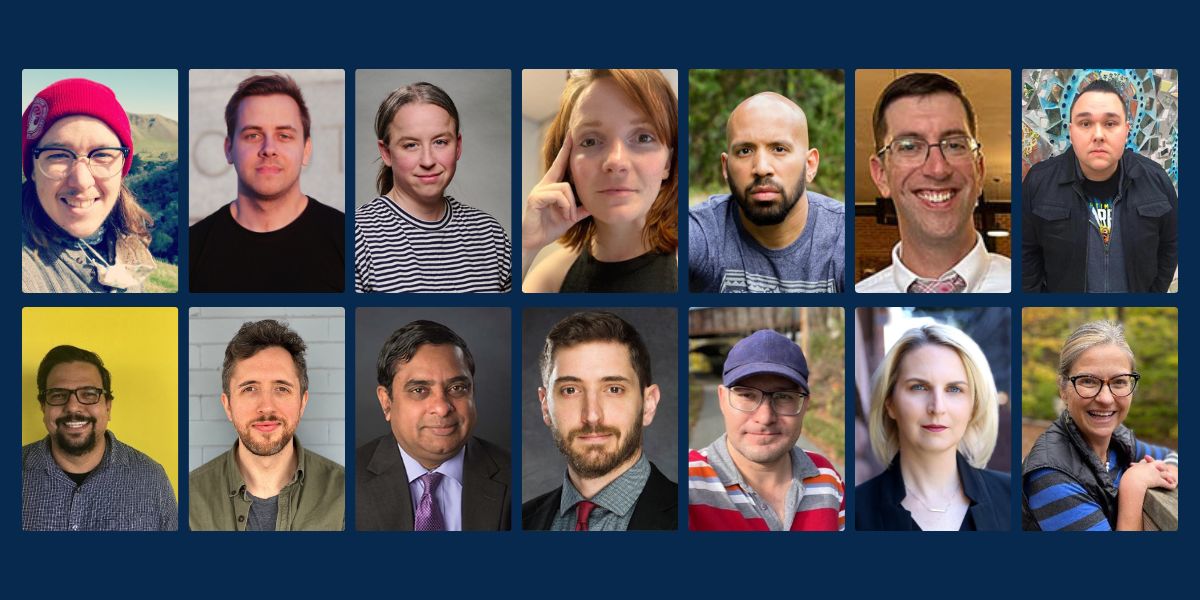Department of Mathematics
In Drexel University’s Department of Mathematics, students work alongside renowned faculty experts while gaining hands-on career and research experiences.
The mathematics department at Drexel University is a close-knit, energetic and diverse group. The Bachelor of Science and Bachelor of Arts in Mathematics provide a healthy foundation of abstract reasoning, applications and computing. With the Doctorate and Master of Science in Mathematics, the department is focused on developing the next generation of mathematicians. Comprised of internationally recognized researchers, the Department of Mathematics faculty specializes in several areas of mathematics, including mathematical biology, combinatorics, matrix and operator theory, geometry, optics, probability, numerical analysis and partial differential equations.
Undergraduate
Drexel University's undergraduate degrees in Mathematics and Mathematical Statistics provide a healthy mix of abstract reasoning, applications and computing in a program that is at the cutting-edge of industry standards. The data-driven program allows students to take courses that best match their interests and modern industry preferences, including freshman sequences that are rich with non-traditional resources. For example, our school for mathematics has a database of Drexel-created calculus problems and is working on a database of video solutions.
Based on their academic interests and career goals, undergraduate students may choose to pursue a Bachelor of Arts (BA) in Mathematics, a Bachelor of Science (BS) in Mathematics, or a Bachelor of Science (BS) in Mathematical Statistics. Students are encouraged to tailor their degrees to fit their intellectual passions. Math majors interested in the actuarial sciences can pursue a specialized plan of study, while those interested in education can earn a high school teaching certification through Drexel’s DragonsTeach program.
The Drexel Co-Op for Math Students
Through Drexel’s renowned cooperative education program, college of mathematics students embark on six-month, full-time periods of paid employment. Opportunities exist for both industry and research co-op positions.
-
Industry co-ops. Our majors have completed co-ops at international corporations and in diverse fields including finance, health care and insurance. Past employers include Susquehanna International Group, the Bryn Mawr Trust Company, Independence Blue Cross, Philadelphia Department of Commerce and Johnson & Johnson.
-
Research co-ops. These positions with internationally recognized math professors provide math majors with a uniquely deep undergraduate research experience and often result in peer-reviewed publications. Research co-ops are excellent preparation for graduate work.
The Mathematics Resource Center (MRC)
The Mathematics Resource Center is a valuable asset to our majors. Many math department students hold paid tutoring positions in the center, where they interact with peers, faculty and graduate students while honing their skills through teaching.
Graduate Programs for Mathematics
The mathematics department’s graduate programs — including the Doctorate and Master of Science in Mathematics — are focused on developing the next generation of mathematicians. Our faculty in our graduate school of mathematics is comprised of internationally recognized researchers with interests spanning mathematical biology, combinatorics, matrix and operator theory, geometry, optics, probability, numerical analysis and partial differential equations. Our graduate programs in mathematics rank among the top 100 in the country, according to U.S. News & World Report.
Ongoing colloquium, seminars and distinguished speaker series events keep our graduate students in touch with the international mathematics community. The second year oral PhD candidacy exam keeps students on track and engages them in research early in the program. Recent PhD recipients have gone on to successful careers in both academia and industry.

“The first lesson that I took away from my co-op is that no matter what I do, I should always try to think outside the box... trying to find different ways to solve a problem is definitely a skill needed in real life.”Weichen ZhouBS mathematics ‘17
Recent News
-

Discussions with the Dean: Meet Math Professor Dimitri Papadopoulos
Associate Teaching Professor of Mathematics Dimitri Papadopoulos, EdD, recently sat down with Dean David Brown, PhD to discuss classroom techniques, how math translates to other fields and more.
-

College of Arts and Sciences Offers New Major in Mathematical Statistics
The new program bolsters interdisciplinary collaboration at Drexel, drawing on the expertise of College of Arts and Sciences faculty members while partnering with other programs across the university that involve the various applications of statistics.
-

Meet the New Faculty Members Joining the College of Arts and Sciences this Fall
The College of Arts and Sciences is excited to welcome 14 new faculty members to our learning community this fall.
-

Explore Creativity, Culture and Careers in the College of Arts and Sciences’ Pre-College Summer Programs
The College of Arts and Sciences' research-rich summer institutes offer dynamic learning experiences that help high schoolers develop real-world skills. Working side-by-side with our faculty experts, students gain valuable experience that will support their academic and professional futures.
-
 CoAS Relaunches Center for Interdisciplinary Studies
Seeking to fulfill its commitment to a justice-oriented curriculum for all of Drexel University, the College of Arts and Sciences relaunched its Center for Interdisciplinary Studies to support collaboration across three key interdisciplinary programs. With new directors in place, the College’s programs in Africana Studies, Jewish Studies, and Women’s and Gender Studies will work across disciplines and areas of inquiry to foster greater inclusion and understanding across the University.
CoAS Relaunches Center for Interdisciplinary Studies
Seeking to fulfill its commitment to a justice-oriented curriculum for all of Drexel University, the College of Arts and Sciences relaunched its Center for Interdisciplinary Studies to support collaboration across three key interdisciplinary programs. With new directors in place, the College’s programs in Africana Studies, Jewish Studies, and Women’s and Gender Studies will work across disciplines and areas of inquiry to foster greater inclusion and understanding across the University.
More News
Upcoming Events
There are currently no events. Please check back soon.
More Events